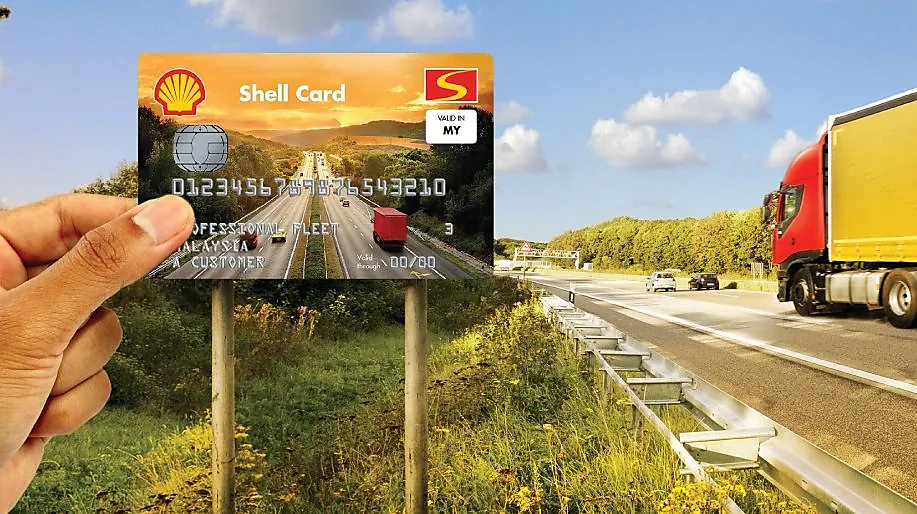The Environmental Benefits of Using Shell Fleet Fuel Cards


In today’s world, where climate change and environmental concerns are at the forefront of global discussions, businesses are increasingly recognizing their role in fostering sustainability. Among the many operational decisions that can influence a company’s environmental impact, the management of fleet fuel usage holds significant importance. One of the lesser-known yet impactful tools in this regard is the Shell Fleet Fuel Card. While these cards are often viewed through the lens of convenience and cost control, their environmental benefits are equally noteworthy.
Smarter Fuel Management for Reduced Carbon Emissions
One of the most compelling environmental advantages of using Shell Fleet Fuel Cards lies in their ability to improve fuel efficiency. These cards enable businesses to monitor fuel consumption on a per-vehicle or per-driver basis, making it easier to identify patterns of overuse or inefficiency. When businesses gain insight into how and where fuel is being consumed, they are better positioned to implement corrective strategies such as driver training, route optimization, and vehicle maintenance—all of which contribute to reduced fuel usage.
Lower fuel consumption naturally leads to fewer carbon emissions. Given that transportation is a major contributor to greenhouse gases, even marginal improvements in fuel efficiency can lead to significant environmental gains over time. Shell’s data-driven approach through its fuel card solutions supports businesses in making informed decisions that reduce their carbon footprint.
Encouraging Eco-Friendly Driving Behavior
Behavioral change among drivers is often a challenging but crucial element of environmental responsibility. The Shell Fleet Fuel Card comes with reporting tools that track behaviors such as idling time, harsh braking, rapid acceleration, and excessive speeding. When companies can access this kind of information in real time, they can implement performance feedback systems that promote eco-friendly driving habits.
Encouraging drivers to adopt smoother and more consistent driving techniques does more than conserve fuel—it also results in less wear and tear on vehicles, thereby extending their operational lifespan. In the long run, this reduces the frequency of vehicle replacements and the associated environmental costs of manufacturing new ones.
Supporting Route Optimization and Reduced Vehicle Miles
Another often-overlooked benefit of Shell Fleet Fuel Cards is their integration with telematics and fleet management software. This integration helps businesses to plan and optimize delivery routes, avoid traffic congestion, and minimize unnecessary detours. When vehicles spend less time on the road, they consume less fuel and emit fewer pollutants.
By reducing total vehicle miles traveled, companies can significantly lower their environmental impact. Optimized routing also contributes to better time management, reducing the pressure on drivers and enabling a more sustainable pace of work. This approach aligns well with the broader goals of sustainable logistics and responsible corporate practices.
Facilitating the Transition to Cleaner Fuel Alternatives
Shell is actively investing in cleaner energy solutions, and its fleet services reflect this commitment. Through the Shell Fleet Fuel Card, businesses can gain access to alternative fuels such as Shell’s lower-emission diesel blends, compressed natural gas (CNG), and even charging solutions for electric vehicles (EVs) in selected regions. These options empower companies to start or accelerate their transition to greener fuels without overhauling their entire infrastructure at once.
This phased approach allows businesses to experiment with cleaner fuels and understand their practical implications before committing fully. As more fleet operators begin to include alternative energy vehicles in their lineup, the environmental benefits multiply—lower tailpipe emissions, reduced dependence on fossil fuels, and a step forward in meeting corporate sustainability goals.
Enhancing Accountability and Environmental Reporting
Modern businesses are increasingly expected to track, report, and improve their environmental performance. The data collected through Shell Fleet Fuel Cards becomes an essential asset in this process. Companies can generate detailed reports that highlight fuel consumption trends, emissions levels, and improvements over time.
This kind of transparency not only meets regulatory or stakeholder requirements but also builds a positive brand image. Businesses that demonstrate genuine commitment to sustainability are more likely to attract environmentally conscious customers, investors, and partners. The fuel card data becomes a cornerstone for building long-term strategies aimed at both operational efficiency and environmental stewardship.
A Practical Tool for a Greener Future
While adopting Shell Fleet Fuel Cards may seem like a logistical or financial decision, the environmental implications are far-reaching. The card acts as a gateway to a more controlled, transparent, and sustainable fleet operation. By enabling smarter fuel use, promoting eco-friendly driving habits, supporting alternative fuel adoption, and enhancing environmental reporting, Shell Fleet Fuel Cards contribute meaningfully to the broader mission of environmental preservation.